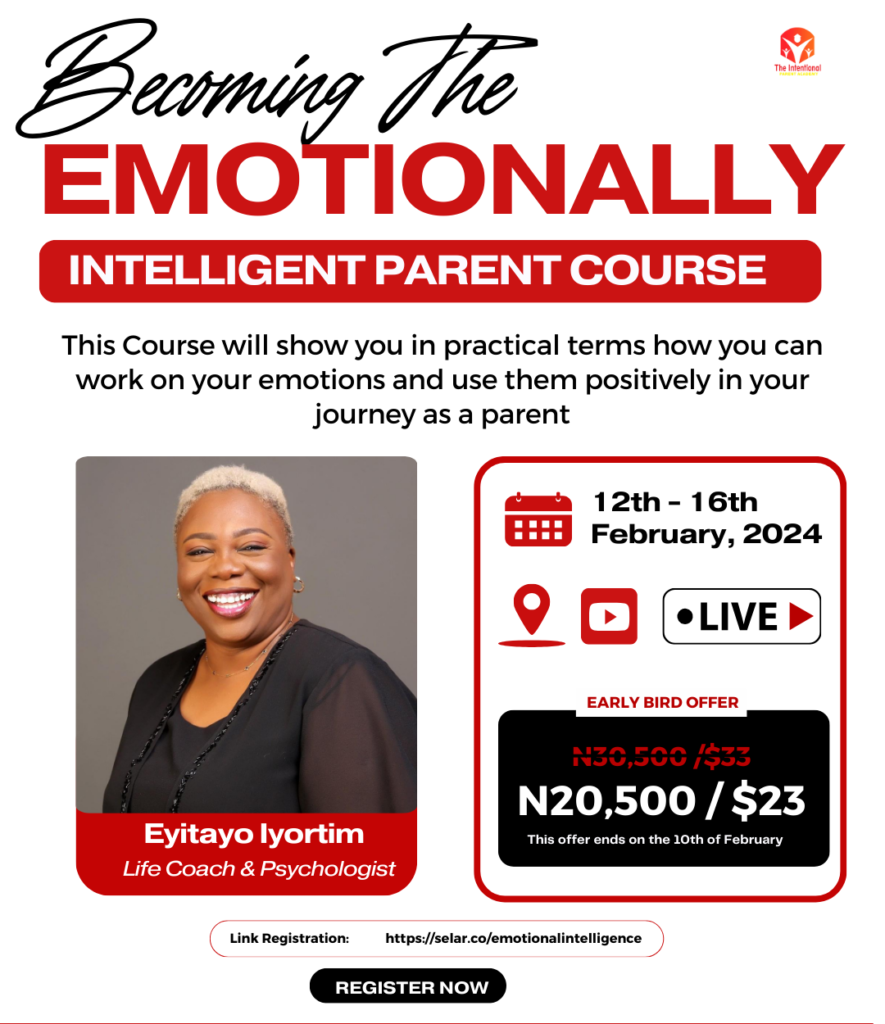Parenting in the social media era can be both constructive and destructive, depending on how you use it. When it comes to parenting in the 21st century, social media is a tool, not a problem. I often tell parents that the social media age will not go away. Instead, it will evolve and expand. From where we started with Facebook, we now have a million and one social media platforms out there. The fact is that the more you try to avoid or control them, the more you can’t manage them or teach your children how to use them wisely. You need to embrace that social media is not your problem. So don’t blame the tool, blame your inefficiency on how to navigate the tool. In essence, blaming social media for your parenting inefficiency is just like a bad workman blaming his tools. If you lack the skills to use the tool, it doesn’t render the tool useless. It’s about honing your skills to make the most of what’s available. Understanding this perspective is crucial. To sail successfully in this digital era, one must acknowledge the winds, not blame them. As the saying goes, “He that knows not where he sails, no wind is favorable.”

Moving forward, in this blogpost we will explore a framework for understanding the role of social media in parenting. If you find yourself attributing your parenting challenges solely to “children of these days,” it’s time for a paradigm shift. Embrace the tools available in today’s world, and you’ll find yourself equipped to champion the complexities of modern parenting.
Parenting in the Digital World; How to Navigate.
Knowledge
As a parent, understanding how to navigate the tools of the digital age is paramount and one of those tools is knowledge. Avoid falling into the trap of blaming external factors. Instead, seize the advantages this era offers, starting with the abundance of information and support. “If you grasp the use of today’s tools, you’ll emerge as a champion. Believe me, you will. I prefer to raise my children in this era, given the information I have at my disposal. While it may seem like a challenging period, it’s, in fact, an era of knowledge, totally different from the industrialization of our parents’ time or the agrarian era of our grandparents.
Just like parenting, maintaining a successful marriage in today’s world also needs knowledge. Without it, the path becomes chaotic. The idea that our parents had flawless marriages is often a romanticized misconception. In truth, many of their marriages were challenging. In a recent conversation with my husband, the governor, He shared a striking observation – 98% of the time, individuals unknowingly replicate patterns learned from their parents. The rising divorce rates are not a consequence of the present time or the behavior of today’s children; it’s a manifestation of a significant knowledge gap. The key factor in both parenting and marriage is knowledge, and without it, failure is inevitable. This isn’t a prophecy, prayer point, or curse; it’s a simple truth that we must acknowledge.

Unlike our parents, we now have abundant resources and knowledge at our disposal. We can’t afford to make excuses when the tools for success are within reach. The children of today are not inherently problematic; instead, they will hold us accountable for our lack of knowledge. Some have already begun challenging their parents. Embracing a commitment to continuous learning is paramount. We must confront the good, the bad, and the ugly aspects of parenting and marriage. What challenges and concerns do we face? Understanding these dynamics is the first step toward navigating the complexities of navigating parenting in the parenting era. The sooner we commit to learning and adapting, the better equipped we will be to meet the demands of the future.
2. Embracing Communication and Connection
The foremost challenge for parents in this era of raising children is the erosion of face-to-face conversations. Genuine, direct communication is gradually becoming an extinct practice in our homes. Even within the confines of the same house, the reliance on digital communication platforms is increasing. In many cases, individuals find themselves in the same house, yet conversations are conducted through text or FaceTime. Without intentional efforts to address these challenges, they can spiral into overwhelming and destructive forces. The very essence of communication is compromised, leading to a disconnect among family members. An alarming example is when a teenager confided in me, saying that in their home, even mealtime notifications are delivered through text messages, this shows a significant shift away from face-to-face communication.

3. Discipline is a Private Affair:
Discipline is one of the most private aspects of parenting. Why has it become a public affair? In today’s parenting with social media, many parents use these platforms to vent about their kids instead of talking to them. They share frustrations, seeking advice or support from online communities. However, this can lead to too many opinions and confusion. Some parents even post videos of disciplining their children on social media, which raises concerns about privacy and their children’s well-being. Instead of directly addressing issues, they turn to online platforms. To navigate this, it’s crucial to prioritize real conversations with your child over seeking validation on social media. Building a strong connection requires talking, understanding, and engaging with your family directly, without relying too much on online platforms for problem-solving.

Discipline in parenting is a personal matter. When you miss the mark, you’re not just trying to prove something, but seeking validation publicly. It’s not about showcasing; it’s about being responsible and disciplined yourself. Ask yourself, why am I disciplining my child on social media? If you know exactly what to do, you don’t need validation from others. Seeking validation is a wrong aspect of our parenting culture that we learned. You don’t have to prove anything to anybody. I have nothing to prove if my child makes a mess outside. There’s no need to defend my parenting skills. Why should it be about me? Sometimes, we struggle with our children making mistakes because we were raised to believe mistakes are unacceptable. It’s crucial to move away from this mindset. I wrote a book titled “Discipline Is Not an Emergency,” which is one of my favorites. Order a copy here. The essence of discipline is not an urgent display but a consistent, thoughtful approach. Let’s shift our focus from seeking approval to understanding and applying effective discipline.

4. Emotional Intelligence
To navigate parenting in this social media era you need emotional intelligence. If our emotions are not in check, the entire parenting process can go awry. Our childhood experiences often leave us with challenges in managing emotions. In our upcoming course, “Becoming an Emotionally Intelligent Parent,” starting on the 12th of February, we delve into the impact of childhood trauma on emotional regulation. It’s a foundational step because without addressing and healing these past experiences, efforts toward emotional regulation might not yield the desired results.
During the course, we’ll explore coping mechanisms, emotional deregulations, and normalized behaviors that originated from our upbringing. One significant module focuses on understanding our childhood, reflecting on our behaviors, recognizing distorted self-perceptions, and understanding how our upbringing shaped our traits. The distorted self-perception we carry from our childhood can affect how we perceive and teach certain subjects. The course aims to bring clarity and help participants navigate their emotional landscapes.

Additionally, I have valuable insights into the influence of social media on young people and the challenges and opportunities for parents. For instance, 68% of parents believe that social media affects their teens’ ability to socialize normally. This is a significant concern that we’ll address, emphasizing the importance of using social media as a tool for our benefit rather than letting it control us.
Online safety is another critical aspect, particularly protecting children from inappropriate content, online predators, and cyberbullying. The digital space is filled with potential dangers, and parents need to be aware and proactive in safeguarding their children. If you haven’t registered for the “Becoming an Emotionally Intelligent Parent” course, I encourage you to do so. The details are available, and it promises to be a transformative experience. Share this information with your family and friends, as the course will provide valuable insights for everyone. I’m passionate about teaching this topic in a unique way, offering perspectives and strategies that aren’t copied from elsewhere. Join me on Deliverance Day, February 12th, for an insightful exploration of emotional intelligence in parenting.
If you haven’t registered for the “Becoming an Emotionally Intelligent Parent” course, I encourage you to do so. The details are available, and it promises to be a transformative experience. Share this information with your family and friends, as the course will provide valuable insights for everyone. I’m passionate about uniquely teaching this topic, offering perspectives and strategies that aren’t copied from elsewhere. Join me on Deliverance Day, February 12th, for an insightful exploration of emotional intelligence in parenting.





Three Industry Experts!
Teaching ……
5 Modules!
5 worksheets!
5 days of learning
12th February is Emotional Intelligence Liberation Day
To join the Becoming an Emotionally Intelligent Parent course, pay N20,500 instead of #30,500 before Friday to 0509494057 (GTB Bank). The Intentional Parent Academy and send proof of payment through WhatsApp chat to 09036633600.
You can register online using this link: https://theintentionalparentacademy.selar.co/emotionalintelligentparent


